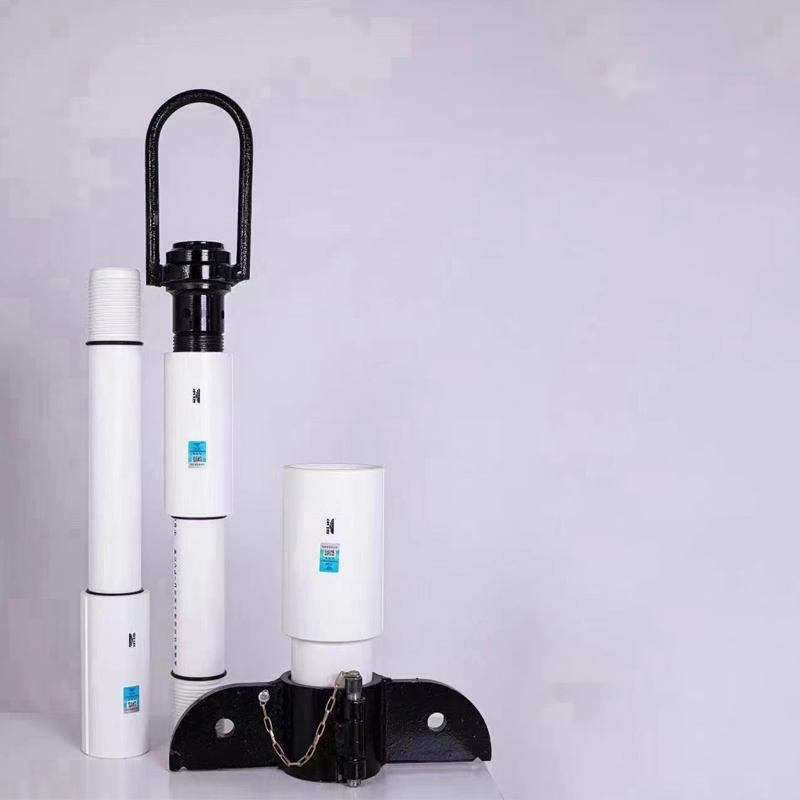Nov . 08, 2024 02:41 Back to list
Understanding PPR Pipe Usage in Water Supply Manufacturing Industries
PPR Pipes for Water Supply in Factories A Comprehensive Overview
In the realm of industrial water supply systems, the choice of piping material plays a pivotal role in determining the efficiency, durability, and overall effectiveness of water distribution. Among the various options available, PPR (Polypropylene Random Copolymer) pipes have gained immense popularity, particularly in factory settings. This article explores the characteristics, advantages, and applications of PPR pipes, emphasizing their significance in water supply systems for factories.
Understanding PPR Pipes
PPR pipes are thermoplastic pipes made from polypropylene random copolymer. This material is known for its high resistance to heat, chemical corrosion, and excellent mechanical properties. PPR pipes come in various diameters and thicknesses, making them suitable for diverse applications ranging from residential plumbing to extensive industrial systems.
One of the primary reasons for the adoption of PPR pipes in factories is their ability to withstand high temperatures, making them ideal for hot water supply. Typically, PPR pipes can handle temperatures of up to 95 degrees Celsius, ensuring a reliable water supply in high-demand environments such as manufacturing plants, processing facilities, and food production units.
Advantages of PPR Pipes
1. Durability and Longevity PPR pipes are known for their robustness and resilience, with a lifespan that can exceed 50 years. Their resistance to scaling and corrosion means that they maintain their integrity over time, reducing the need for frequent replacements.
2. Safety and Non-toxicity PPR pipes are chemically inert, which means they do not leach harmful substances into the water supply. This property makes them a safe choice for various industrial applications, including those in the food and beverage sector.
3. Ease of Installation PPR pipes are lightweight and easy to handle, reducing labor costs during installation. The welding process used to join PPR pipes creates seamless connections that enhance overall system integrity and reduce the risk of leaks.
4. Energy Efficiency PPR pipes offer excellent thermal insulation properties, which can lead to energy savings in heating systems. This feature is particularly beneficial in factories that utilize hot water in their processes.
ppr pipe for water supply factories

5. Cost-Effectiveness While the initial investment in PPR piping might be higher than some alternative materials, the long-term savings on maintenance, energy efficiency, and durability make PPR pipes a cost-effective solution for factory water supply systems.
Applications in Factories
PPR pipes are versatile and can be used in a variety of applications within a factory setting, including
- Hot and Cold Water Supply PPR pipes are suitable for transporting both hot and cold water, making them ideal for a wide range of industrial uses.
- Compressed Air Systems PPR piping is capable of handling pressurized air, a common requirement in manufacturing processes.
- Chemical Transportation Due to their resistance to chemicals, PPR pipes are often utilized in transporting a variety of non-corrosive chemicals used in factories.
- Irrigation Systems In industries that require irrigation, such as agriculture and food production, PPR pipes provide a reliable water supply for crop and landscape management.
- HVAC Systems PPR solutions are used in heating, ventilation, and air conditioning systems to ensure optimal performance.
Conclusion
In conclusion, PPR pipes represent a superior choice for water supply systems in factories due to their numerous advantages, including durability, safety, ease of installation, energy efficiency, and cost-effectiveness. As industries evolve and demand more reliable water supply solutions, the use of PPR pipes is set to increase. The ability of PPR piping systems to cater to a wide range of applications within industrial environments makes them an integral component of modern factory infrastructure. By investing in PPR pipes, factory managers can ensure a sustainable, efficient, and effective water supply system that meets both their current needs and future demands. With the continued development of manufacturing technologies, the significance of PPR pipes will undoubtedly be felt, contributing to the overall improvement of industrial operations worldwide.
-
High-Quality PVC Borehole Pipes Durable & Versatile Pipe Solutions
NewsJul.08,2025
-
High-Quality PVC Perforated Pipes for Efficient Drainage Leading Manufacturers & Factories
NewsJul.08,2025
-
High-Quality PVC Borehole Pipes Durable Pipe Solutions by Leading Manufacturer
NewsJul.08,2025
-
High-Quality PVC Borehole Pipes Reliable PVC Pipe Manufacturer Solutions
NewsJul.07,2025
-
High-Quality UPVC Drain Pipes Durable HDPE & Drain Pipe Solutions
NewsJul.07,2025
-
High-Quality Conduit Pipes & HDPE Conduit Fittings Manufacturer Reliable Factory Supply
NewsJul.06,2025

